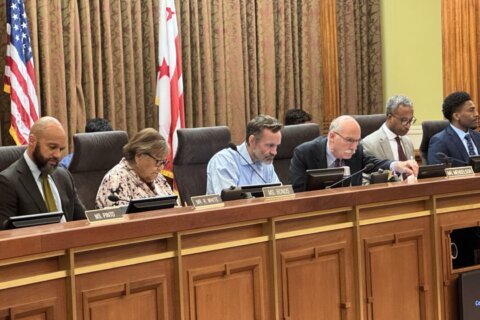As heat and humidity descend on the D.C. region, the risk of dehydration goes up.
It’s pretty simple, yet we often forget. Water is essential to life. Without it, or enough of it, human bodies simply can’t function.
“I think the most important thing is water is incredibly important to keep our bodies running,” said Dr. Ravi Johar, chief medical officer for United Healthcare in the Missouri-Illinois area.
When dehydration starts to take effect, energy is the first thing to go, then lightheadedness comes in. Taken to it’s extreme, the kidneys will eventually start to fail after prolonged bouts of dehydration.
Each day people should take in around a gallon of fluids, according to Dr. Johar.
“Women generally need a little bit less fluid than men,” Dr. Johar said. “Women should get about 11-and-a-half cups of fluid a day, or 92 ounces, whereas men need about 15-and-a-half cups, or 124 ounces a day.”
But this doesn’t mean people should to carry around a galloon jug and take swigs until it’s empty. Eating food aids hydration. Three square meals make up 20% of a person’s water intake, according to Dr. Johar.
“And, if you’re eating a lot less, you may actually need to drink more than that eight to 10 [cups],” he said. “The goal is to try to get to that 92 or 124 ounces a day of fluid.”
Thankfully, the human body is really good at signaling when it needs water.
“So really listen to it,” Dr. Johar said. “Drink whenever you’re thirsty. Don’t feel like you have to do any set amount of fluid. Your body will let you know what you need, and it’s best to listen to it.”
Common signs of dehydration are:
- Being thirsty
- Having really dry, cool skin
- Dry mouth
- Headache
- Muscle cramps
- Dark yellow urine
- Not urinating
- Fatigue








